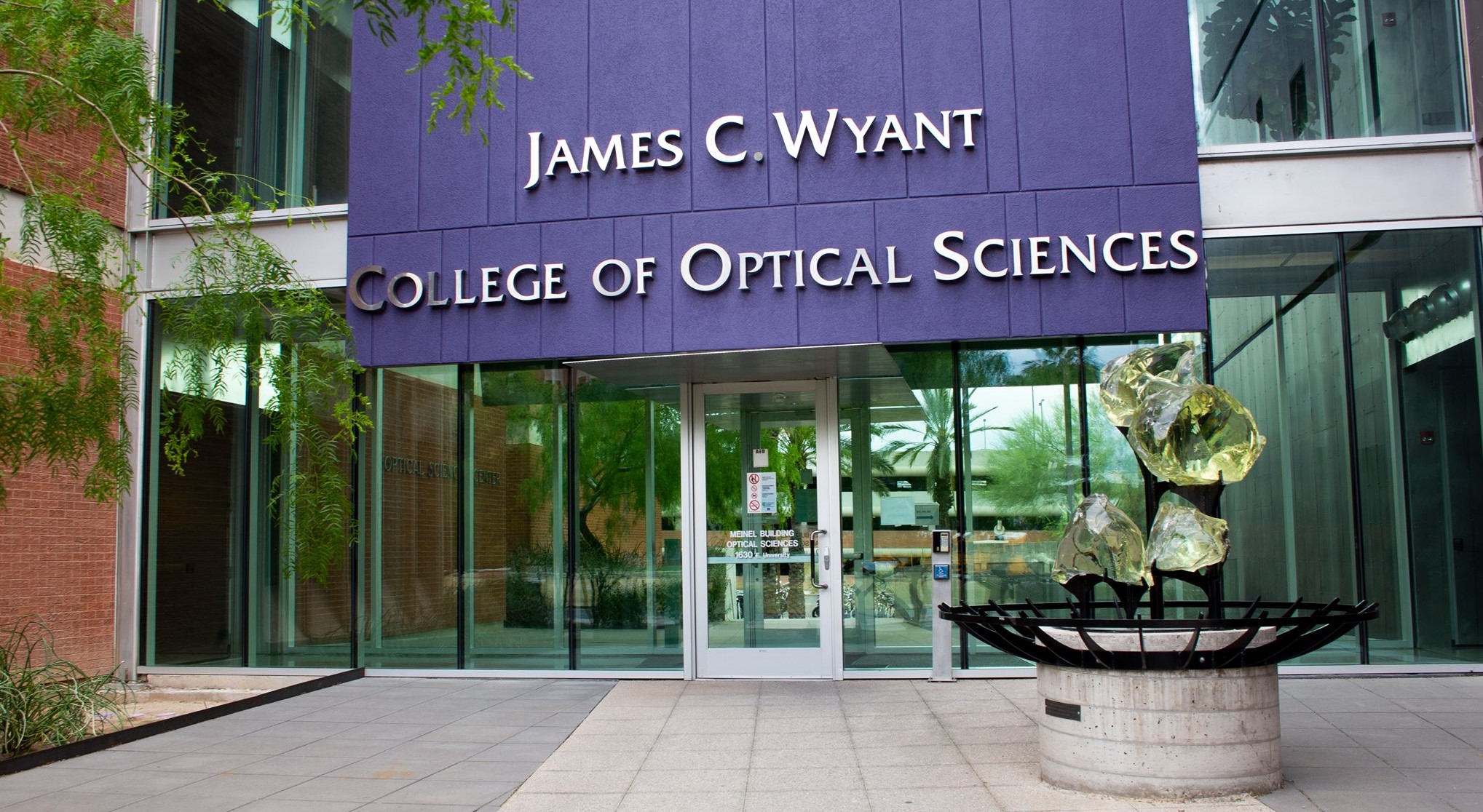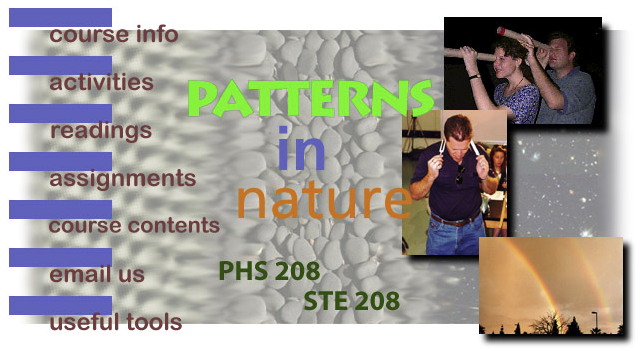
This course is offered by the Wyant College of Optical Sciences at the University of Arizona. It provides the student with a fundamental understanding of optical system design and instrumentation.
The course begins with the foundations of geometrical optics, which includes the first-order properties of systems, and paraxial raytracing, continues with a discussion of elementary optical systems, and concludes with an introduction to optical materials and dispersion.
A special emphasis is placed upon the practical aspects of the design of optical systems.
Watch the series of 29 lecture videos here.

Patterns in Nature is a project-oriented science course to develop critical thinking, and technical skills. This course is concerned with light and microscopy at the conceptual level.
Students will be able to:
- Describe the path of light including reflection, refraction, and absorption.
- Describe phenomena around them: blue sky, rainbows, red sunsets, and the Earth’s shadow.
- Demonstrate the use of science kits (either home made or commercial) to illustrate science concepts.
- Explain the difference between optical and electron microscopes, and illustrate advantages of each.
- Use spectrometers, IR and UV light sources, prisms, and lenses to interpret optical phenomena.



